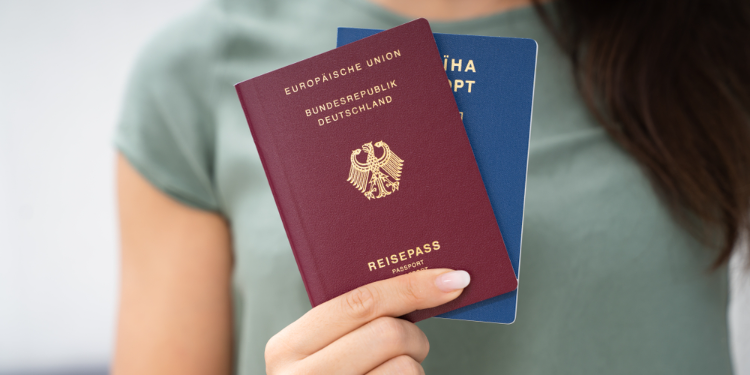
The German government might soon reduce the number of years of residency needed to apply for citizenship from 8 to 5 years. In addition, dual citizenship might soon be finally allowed for all expats, not just a select few. At a time when the country is suffering from labor shortages, these amendments will likely attract more expats who hope to become EU citizens.
Dual citizenship is limited to a few expats, but this might soon change
Germany is among the few countries in the European Union to restrict dual citizenship. Austria, the Netherlands, Slovakia, Lithuania and Latvia are other EU countries with similar restrictions.
Meanwhile, other economically powerful EU countries with many immigrants, like France, Spain and Italy, have accepted dual citizenship for a very long time. Immigration powerhouses beyond the EU, like the UK, the US, Canada and Australia, also recognize dual citizenship. Germany's restrictive policies on this issue make it lose a competitive edge over these other competitors in the global race for skilled immigrants.
It's not that dual citizenship is impossible to obtain in Germany; it is just restricted to a few, highly specific cases. It is allowed for expats from other EU countries or Switzerland. It is also allowed for expats whose home countries don't allow the forfeiting of their nationality (Morocco, Argentina, Uruguay, Mexico).
Other exceptions are made for foreigners who are hoping to acquire citizenship by descent or ancestry. It is also exceptionally allowed for first-generation Germans who have one foreign-born parent and one German parent. Alternatively, these first-generation Germans can also have two foreign-born parents, as long as one of these parents has been in Germany for at least 8 years when they were born.
A humanitarian exception can also be made for expats who can no longer renounce their previous citizenship because of old age, health problems, or financial constraints. Renouncing one's citizenship can be a costly procedure. It costs 2,350 US dollars to renounce one's American citizenship, for instance. Expats who wished to appeal to have dual citizenship had to apply for a retention permit (“Beibehaltungsgenehmigung”).
However, there is currently a push to reform dual citizenship laws. In December, the Bundestag is set to debate extending dual citizenship rights to all expats. If passed, this should be possible in early 2023.
5 instead of 8 years might soon be required for residency
Under current law, expats need to have been in Germany for 8 continuous years before they can renounce their former citizenship and become German citizens. However, a draft legislative amendment to be debated by the Bundestag might soon reduce that to 5 years.
In comparison, in France, the UK, the US and the Netherlands, expats need to have lived in the country for only 5 continuous years in order to apply for citizenship. In Australia, the requirement is even lower: 4 years. In Canada, expats need to have been in the country for 3 out of the past 5 years to start the naturalization process.
The previous German government, led by Angela Merkel from 2013 to 2021, was inflexible when it came to reforming citizenship rules. In September 2021, a new ruling tripartite coalition and a new chancellor, Olaf Sholz, were elected. This new government is more willing to amend citizenship laws, especially after the pandemic created a labor shortage in the country.
More lenient citizenship laws to boost immigration
In early 2023, the German state might finally allow dual citizenship. The previous, hyper-specific eligibility requirements for dual citizenship will become defunct, as from there on, any expat will be eligible. The number of years of residency to apply for citizenship will also be reduced to 5 years, so it will finally be on par with other historical lands of immigration.
Why this relaxation of the laws now? These reforms will work in favor of Germany's immigration goals. The country's current immigration target is an ambitious 400,000 new skilled workers (i.e., economic migrants) per year.
Germany faces tough competition from other (oftentimes larger) immigration powerhouses which have also increased their targets, notably Canada and Australia. The pandemic, border closures and Great Resignation have created labor shortages in all of these countries, and they are now engaged in a race to attract global talent to fill their vacancies. Easing the path to and conditions for EU citizenship will attract many skilled expats from outside the union.
Germany is experiencing a shortage of skilled workers in various sectors: healthcare, elderly care, manufacturing, construction, information technology, the natural sciences, engineering, catering, hospitality, skilled trades (e.g., plumbing, the maintenance of electric circuits). Earlier this year, Christian Duerr, a parliamentarian of the government coalition, stressed that “the shortage of skilled workers has become so serious by now that it is dramatically slowing down our economy.” Easing citizenship laws is one of many measures the government is taking to attract immigrants. In October, they also increased the minimum wage from €10.45 to €12 to be a more attractive country to work in.



















